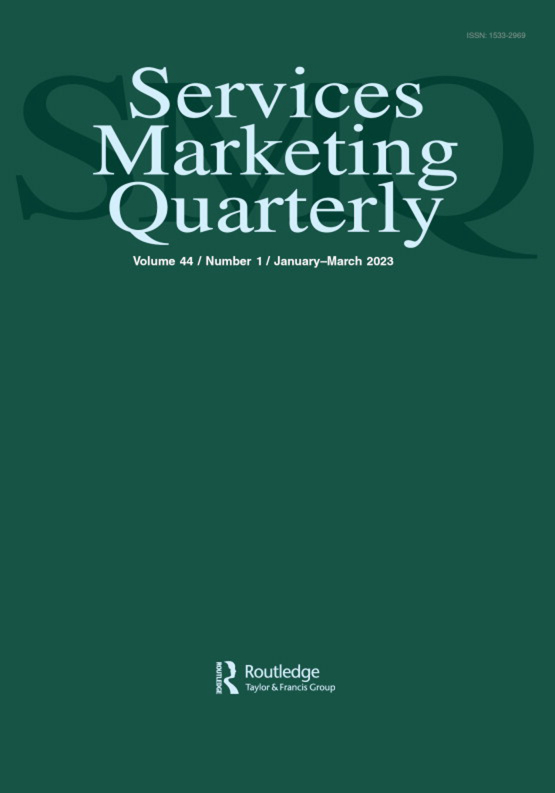Submit a Manuscript to the Journal
Services Marketing Quarterly
For a Special Issue on
Twin transition to advance industrial ecosystems and reduce societal inequalities
Manuscript deadline

Special Issue Editor(s)
Christian Bux,
University of Foggia, Department of Economics
christian.bux@unifg.it
Mariarosaria Lombardi,
University of Foggia, Department of Economics
mariarosaria.lombardi@unifg.it
Alina Cerasela Aluculesei,
Institute for World Economy, Romanian Academy
alina.cerasela@iem.ro
Twin transition to advance industrial ecosystems and reduce societal inequalities
The “twin transition” is based on a strong nexus between technological advancements and environmental sustainability and could contribute to satisfy the economic and social development of local communities (Collini and Hausemer, 2024). The service industry has great possibilities of being involved in the digital and green transition, and of being able to innovate on a social level, given its significant (and daily) impact on local communities through the most disparate activities: healthcare, banking, education, hospitality industry, etc. (Abi Saad et al., 2024; Lóska and Uotila, 2024).
However, the adoption of strategies that consider multiple variables (i.e., economic profit, financial feasibility, increase in digital technologies, environmental sustainability, social impact) is complex at a company level (Kovacic et al., 2024; Myshko et al., 2024). This is due to the absence of education and suitable skills among employees, of adequate protocols within organizations, and of a general abstraction towards twin transition issues. Therefore, public (and local) authorities are trying to create ecosystems that aim to develop research and innovation (and systematic transfer) among organizations, with the purpose of: (i) facilitating a consultation process; (ii) developing a policy framework to support companies; (iii) presenting technology roadmaps for boosting circular technologies, innovative business models and servitization at the global and the local level; (iv) addressing social adaptations driven by the green and digital transition (Rabelo Neto et al., 2024). The topic of digitalization and sustainability education does not only concern organizations. The ecological and digital transition process also includes all the stakeholders of the service industries, from product suppliers to final consumers, including citizens who use banking, hospital, school (and training) or tourism services daily (Eteris et al., 2024).
Research on digitalization and sustainability spread in the last decade, but the study of the intersection among these aspects has not yet been sufficiently explored. The European Commission’s Green Agenda and the ongoing initiatives (e.g., the Green Deal program) demonstrate that these two topics can no longer be treated separately and that a deep understanding of the twin transition is required. This is even more necessary in the services sector, which is currently an integral part of all activities, such as banking or healthcare.
The question is, therefore, this: what are (or can be) the main strategies, the main opportunities and challenges, and the main drivers to enable a growing economy and digital efficiency in the service industry, increasing the connection between businesses and citizens?
This special issue aims to contribute to filling the gap in the literature regarding the study of the impact of twin transition on the business environment and citizens. The papers we expect will focus on the possibility of digital and green transition and social innovation advancing industrial ecosystems and reducing societal inequalities.
We encourage interdisciplinary contributions that address the following potential issues, but are not limited to:
- The role of education in the twin transition
- The impact of the twin transition on reducing societal inequalities
- How SMEs should address the twin transition
- The impact of the twin transition on the tourism industry and how travellers perceive it
- Why companies in different service industries should adopt the twin transition
- How difficult is it to implement the twin transition? What are the drivers and barriers in the twin transformation
- How are the citizens affected by the twin transition in different areas (e.g., banking, healthcare, hospitality etc.)
List of Topic Areas
· Digital and green transition
· Twin transition
· Local communities
· Green jobs
· Green services
(please contact Guest Editors for list of references)
Submission Instructions
All submissions should be made through SMQ's Submission Portal - follow 'Go to submission site' link at https://www.tandfonline.com/journals/wsmq20
